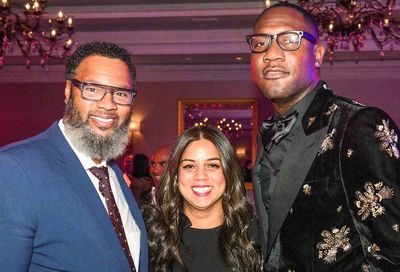Supreme Court to Rule on Trans Youth Sports Bans
The high court will hear cases from Idaho and West Virginia that could determine whether bans on transgender athletes are constitutional.

The U.S. Supreme Court has agreed to hear two cases challenging state laws that bar transgender student-athletes from competing on female-designated sports teams at public schools and universities. One of those cases, Little v. Hecox, involves Boise State student Lindsay Hecox, who sued after being denied a spot on the school’s women’s track and cross-country teams under Idaho’s transgender sports ban.
A federal judge blocked Idaho’s law in 2020, finding that it likely violated the Equal Protection Clause of the U.S. Constitution and discriminated against Hecox and other transgender athletes based on sex and transgender status. The 9th U.S. Circuit Court of Appeals upheld the ruling in 2023 and again in an amended opinion last year. The state then appealed to the Supreme Court, asking it to decide whether the ban is constitutional.
The court also took up West Virginia v. B.P.J., a case involving high school student Becky Pepper-Jackson, who has been taking puberty blockers to prevent male puberty and the development of physical traits that could give her an advantage over cisgender female athletes. She sought to compete on her school’s cross-country and track teams.
Pepper-Jackson argued the law treated her unfairly because she is transgender, in violation of her constitutional right to equal protection.
A federal judge initially blocked the law from taking effect, but later ruled against Pepper-Jackson, arguing that the ban was necessary to prevent cisgender female athletes from being placed at a competitive disadvantage. The 4th U.S. Circuit Court of Appeals reversed that ruling, finding that the law violated Pepper-Jackson’s rights under Title IX, the 1972 federal law prohibiting sex-based discrimination in federally funded education programs. The state appealed that decision to the Supreme Court.
The Idaho and West Virginia cases will be heard by the Supreme Court during its next term, which begins on October 6.
“Like any other educational program, school athletic programs should be accessible for everyone regardless of their sex or transgender status,” Joshua Block, senior counsel for the American Civil Liberties Union’s LGBTQ & HIV Project, said in a statement.
“Trans kids play sports for the same reasons their peers do — to learn perseverance, dedication, teamwork, and to simply have fun with their friends. Categorically excluding kids from school sports just because they are transgender will only make our schools less safe and more hurtful places for all youth.”
Tara Borelli, a senior counsel for Lambda Legal, said in a statement that athletes like Pepper-Jackson just want to play sports with their friends and peers.
“Everyone understands the value of participating in team athletics, for fitness, leadership, socialization, and myriad other benefits,” Borelli said. “The U.S. Court of Appeals for the Fourth Circuit last April issued a thoughtful and thorough ruling allowing B.P.J. to continue participating in track events. That well-reasoned decision should stand the test of time, and we stand ready to defend it.”
The court declined to hear a similar case from Arizona, in which Jane Doe, a 13-year-old cross-country, soccer, and basketball player, and Megan Roe, a 17-year-old volleyball player — both on puberty blockers — challenged the state’s transgender sports ban as overly broad and discriminatory. They also argued that because they have not undergone male puberty, they hold no “unfair advantage” over cisgender female athletes.
Currently, 27 states have laws restricting transgender athletes from competing on teams designated for girls.
Last month, the U.S. Supreme Court upheld a Tennessee ban on transition-related health care for transgender youth. In that ruling, the court found the ban did not discriminate based on sex or transgender status.
It subsequently directed appeals courts to revisit rulings on transgender insurance exclusions in Medicaid and government-sponsored health plans, as well as the right of transgender people to change the gender marker on their birth certificates — signaling that courts may continue rolling back transgender rights in the future.
Support Metro Weekly’s Journalism
These are challenging times for news organizations. And yet it’s crucial we stay active and provide vital resources and information to both our local readers and the world. So won’t you please take a moment and consider supporting Metro Weekly with a membership? For as little as $5 a month, you can help ensure Metro Weekly magazine and MetroWeekly.com remain free, viable resources as we provide the best, most diverse, culturally-resonant LGBTQ coverage in both the D.C. region and around the world. Memberships come with exclusive perks and discounts, your own personal digital delivery of each week’s magazine (and an archive), access to our Member's Lounge when it launches this fall, and exclusive members-only items like Metro Weekly Membership Mugs and Tote Bags! Check out all our membership levels here and please join us today!



























You must be logged in to post a comment.